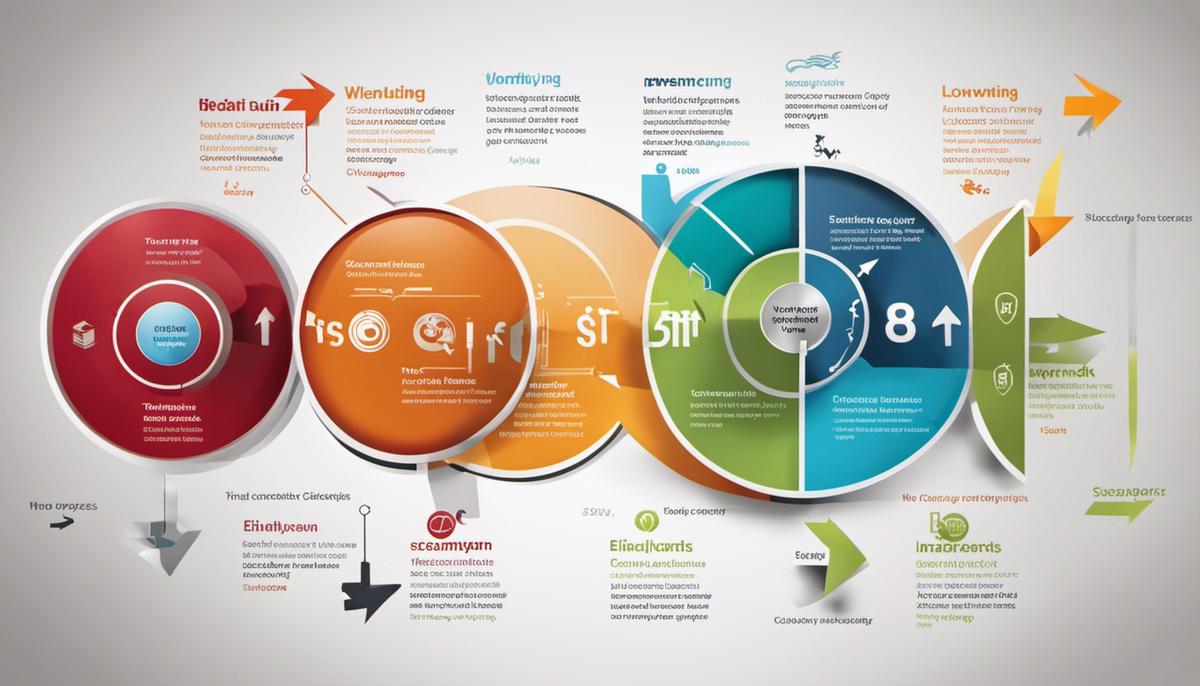

Agridisk
Egypt - Alexandria

All you need for agribusiness (What It Is, how to begin, Challenges)
Description: Entering the world of agriculture is not merely about tilling the soil and reaping its produce; it's about navigating a complex business landscape that requires industry-specific knowledge, strategic planning, operational efficiency, and adept marketing. This journey, although ensnared with challenges, yields a bounty of opportunities for those willing to embark on it. From understanding different farming techniques and adapting to seasons and soil types, to decoding agricultural regulations, getting a clear grasp of the industry nuances is crucial. Moreover, setting a robust business plan, targeting the right market, and seeking the appropriate resources for funding form the pillars for a successful startup in this sector. To start up an agricultural business, having a comprehensive understanding of various farming methods and technology is crucial. This includes traditional farming methods such as tilling, as well as more modern methods that involve the use of machinery and technology for planting, irrigation, and harvesting. Knowledge about organic farming techniques and high-tech hydroponic or aquaponic systems is also beneficial. You can acquire these insights by visiting local farm businesses, attending agricultural fairs or conventions, or through online research and online courses on agriculture. Your agricultural business venture might involve growing certain types of crops. It's important to have knowledge about different crop types, and which crops are best suited for different seasons and soil types. For example, some crops thrive in warm summer months while others grow best in cooler climates. Similarly, the chemical composition of soil varies and influences the types of crops that can be successfully grown. Research, consultation with agricultural extension services, or soil testing services can assist in getting detailed information about your farm's soil type. Agricultural activities are influenced by various policies and regulations that vary from country to country or even from state to state. It is crucial to stay updated with these regulations. They may relate to land use, water rights, safety standards, environmental impact, pest control, GMOs, and organic certification, among others. These regulations may also influence the financial aspects of your business, like taxes and subsidies. Accurate information on agricultural policies can be typically accessed via governmental and legal resources. Understanding current market trends, demand, and price fluctuations are integral to running a successful agriculture business. Market research should include understanding consumers' changing preferences (like organic or local produce), technological developments impacting production or distribution, or even changes in weather patterns affecting crop yield. Connecting with fellow farmers, agricultural organizations, and consultants can provide important insight, advice, and resources for starting up an agriculture business. Networking events, seminars, and online communities serve as platforms to engage with experts who offer practical advice on various aspects of the industry. Such insights can be crucial in decision-making processes regarding types of farming methods to adopt, suitable crops to plant, and staying updated on agricultural policies. Starting an agricultural business can require substantial financial resources. Depending on the nature of the business, costs may include land purchase or lease, equipment, seeds, fertilizer, labor, and more. Understanding the various avenues for funding is critical. Funding can come from personal savings, loans, investment, agricultural grants, or government subsidies. It's important to plan for these costs in your business plan and to understand the terms and conditions related to any borrowed funds. In a nutshell, understanding the workings of the agricultural industry involved gaining knowledge in farming methods, identifying the right crops, staying updated with policies and regulations, market trends, networking, and managing finances. Your first step in starting an agriculture business is to identify your target market. This is crucial as it determines the type of crops you'll cultivate or livestock you'll raise. Start by researching the demand in your local area - are people looking for organic vegetables, grass-fed beef, or maybe exotic herbs? Survey potential customers, look at trends in your area, and speak to local restaurant owners or farmers markets to find your niche. Once you've identified your target market, it's time to set realistic goals for your agriculture business. This can range from the number of crops you aim to produce every quarter, the amount of income you want to generate annually, or even your goal for business expansion. Keep in mind that these goals need to be achievable considering your resources, skills, and the market demand. A strategic business plan can help you outline these goals. Rural farming requires a sizable initial investment in equipment such as tractors, plows, irrigation systems, and more. It's crucial to account for these expenses in your budget plans. Besides equipment, labor is another significant cost in the agricultural sector. Whether you plan to hire workers or labor the fields yourself, accounting for this labor cost in terms of time or wages is essential. In planning your agricultural business, you also need to set profitability expectations. Conduct a cost-profit analysis to understand how much you're likely to spend on your farming activities versus how much income you can expect in return. This analysis will help you price your products appropriately and manage your cash flow. Remember that profitability in agriculture can take time, so don't expect to turn a profit overnight. Launching an agricultural business can be capital-intensive, but there are several funding options you can explore. USDA agricultural loans are a good choice for new farmers, as they offer favorable terms and interest rates. Additionally, grants are also available from various federal and state agencies for specific farming activities. You could also consider seeking private investment from business partners or investors who are interested in sustainable agriculture. Be sure to thoroughly research all your options and choose a funding route that matches your growth plans and risk tolerance. Starting up an agriculture business requires careful planning and consideration. By identifying your target market, setting realistic goals, budgeting for equipment and labor, setting profitability expectations, and exploring various funding options, you can lay the groundwork for a successful endeavor in agriculture. Remember, the key to a thriving agriculture business lies in strategic planning, constant reassessment, and a deep understanding of your market. Starting an agriculture business requires a robust comprehension of daily farm operations. This involves understanding the seasons and knowing when to plant and harvest various crops. Different types of crops have varying plant and harvest seasons; for example, corn is typically planted in the spring and harvested in the fall, while winter wheat is planted in the fall and harvested in the late spring or early summer. Knowing how to rotate crops is another crucial aspect. Crop rotation is the practice of growing different types of crops in the same area during sequential seasons. It helps to prevent soil depletion, manage pests and diseases, and improve soil structure and fertility. If your agriculture business includes raising livestock, you would need knowledge and skills in animal husbandry. This involves taking care of animals, including feeding, breeding, managing diseases, and understanding their behavior. Some farms might specialize in a particular livestock type like cattle, poultry, or pigs, while others may have a variety. Beyond just the care of the animals, you also need to understand when to sell livestock or animal products to obtain the best prices. Effective farm management is absolutely crucial for the success of an agriculture business. This involves planning, organizing, and controlling resources – both human and material – to achieve your business objectives. Crucial management activities include financial management, staff management, strategic planning, and risk management. These functions help ensure that the farm operation is as efficient, productive, and profitable as possible. Farm machinery can vary significantly depending on the type of agriculture business. Understanding and operating machinery such as tractors, combine harvesters, and planting equipment would play a crucial role in crop farming. Livestock farming might require different kinds of machinery for feeding and animal maintenance. Advancements in technology have also become increasingly crucial in modern agriculture. Precision farming technologies such as GPS guided machinery, online livestock management, and drone crop management provide useful information, enabling more efficient and effective farm operations. Becoming familiar with these technologies can improve the productivity and profitability of your farming business. The first step is to understand your agricultural products in-depth, their unique selling points, and who your target audience would be. Knowing your consumers’ preferences, dietary habits, age group, location, purchasing power, etc., can help you tailor your marketing strategies effectively. Using compelling storytelling to communicate your farming processes and the benefits of your products can help you connect with consumers emotionally. You can use social media platforms, websites, and local newspapers to share your story. If you're engaged in organic farming, highlight the health benefits and environmental kindness associated with your practices. Offer ample information on the quality and freshness of your produce. Expanding your sales channels can help increase visibility, reach more customers, and boost your sales. You can consider direct-to-consumer options like farmers' markets, community-supported agriculture (CSA) programs, and online platforms. Additionally, you can explore partnerships with restaurants, grocery stores, schools, and institutions that provide food services. Joining or starting an agricultural cooperative can be beneficial for small farmers. Cooperatives can help reduce costs through pooled purchasing of inputs or shared machinery. More importantly, they can provide greater bargaining power with buyers and improve market access. They can also offer opportunities for networking and learning from fellow farmers. Create a strong presence in local markets and develop relationships with local retailers. Provide them with regular and quality supply of your produce. Personal visits, sending samples of new products, and giving them a tailored purchasing experience can help strengthen your relations. Organic farming can offer premium pricing and access to targeted market segments. If your business model allows, consider transitioning to organic farming. Obtain organic certifications and leverage this in your marketing efforts. Pending on local regulations, some assistance may be available for farmers wishing to transition to organic practices. In conclusion, effective marketing of your agricultural products involves a multi-faceted approach that includes understanding your customers, exploring different sales channels, utilizing agricultural cooperatives, building strong relationships with local retailers, and considering organic farming if it fits into your business model. Each approach will require significant effort and time, but can offer great dividends in creating a successful agricultural business. Effective marketing and distribution strategies, as well as cooperative networking within the agricultural community, propel your business forward. It is through these relationships that you boost visibility, brand reputation, and accessibility of your products. Also, embracing advanced technological tools and exploring niche markets like organic farming can further enhance your proposition. Indeed, the agricultural business calls for passion, persistence, and strategic acumen. With these key elements, one can not only successfully cultivate a thriving venture in agriculture but also contribute significantly to addressing our planet's essential needs for sustainability and food security. For everyone who wants to establish his own business in the field of agribusiness, this article will explain everything to you, from defining an agribusiness, to how to create your own project, and then how you can deal with the challenges that you will face and succeed in your project, follow our topics here, We promise you will benefit Agribusiness is a comprehensive system, you have to learn how to manage it, it is in some way like a circle of life, you have to manage it professionally, it is a complete system of work, farmers raise animals and birds, in order to get milk, meat and eggs from them, and they grow vegetables and fruits using advanced techniques for harvesting vegetables And fruits, and also you have to consider the methods of cleaning and raising livestock, so it is unlikely that every subset of the industry will interact directly with the consumer, and you also have to manage the business efficiently and carefully so that you get the best prices in the market, and then achieve the profit that you wish for. Before starting a business, you should know the following: Global competition has a big role in the challenges of agricultural business, and countries face a number of challenges and pressures, as it requires you to be aware of how to produce a good crop, and also at a price that competes with the market, and raise production efficiency, and therefore you should buy new technologies, methods of fertilizing crops and watering them using modern methods And also fast ways to deliver your products to global markets. The prices of agricultural products are constantly changing very quickly, and this may make production planning a complex thing, but the matter requires great patience, and farmers may suffer from a decrease in arable land, with the expansion of continuous construction operations and the reduction of the agricultural area.Industry Knowledge
Understanding Farming Methods and Technology
Identifying Suitable Crops
Understanding Agricultural Policies and Regulations
Keeping Abreast with Market Trends
Networking within the Industry
Accessing Financial Resources

Business Plan and Funding
Identifying Your Target Market
Setting Realistic Goals
Budgeting for Equipment and Labor
Profitability Expectations
Exploring Funding Options
Summary

Farm Operations and Management
Understanding Daily Farm Operations
Animal Husbandry in an Agriculture Business
Overall Management of the Agriculture Business
Mastery of Farm Machinery and Technology

Marketing and Distribution Strategies
Understanding Your Products and Identifying Your Audience
Effective Marketing Strategies for Agricultural Products
Exploring Various Channels of Distribution
The Role of Agricultural Cooperatives
Building Relationships with Local Markets and Retailers
Exploring Opportunities in Organic Farming


what is the agribusiness?
How To begin Agribusiness?
Agribusiness challenges?
Important Notes: